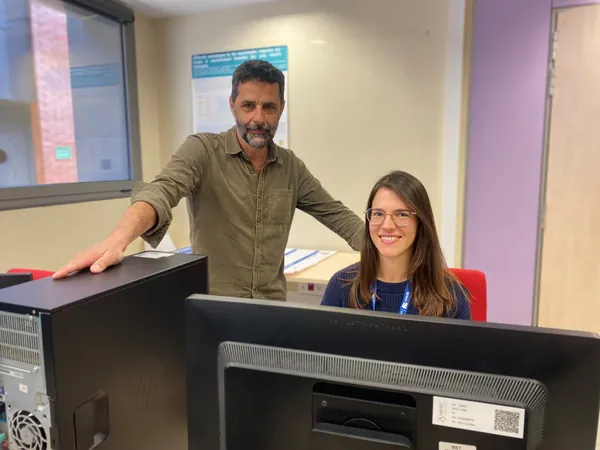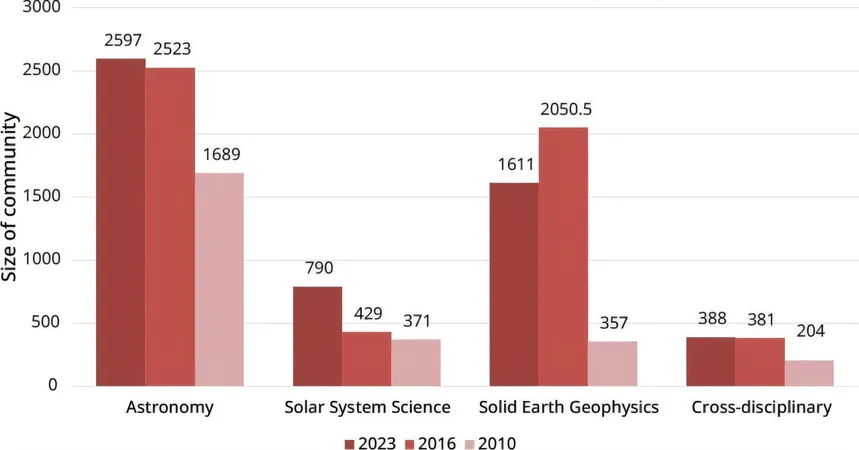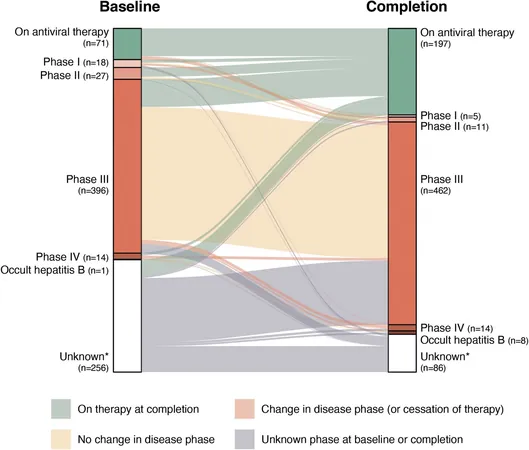
Revolutionizing Public Health Research: A Breakthrough in Cohort Population Representativeness
2025-05-29
Author: Arjun
A Major Leap in Translational Research
A groundbreaking study from the Germans Trias i Pujol Research Institute (IGTP) has arrived, setting the stage for a major transformation in public health research. Published in the prestigious journal *Scientific Reports*, this research proposes an innovative method to tackle selection biases in population-based cohorts, leading to more reliable data essential for advancing precision medicine.
The Dynamic GCAT Cohort: A Treasure Trove of Health Insights
The study revolves around the GCAT cohort, a remarkable group of nearly 20,000 adults from Catalonia. This unique platform delves into the intricate interplay between genetic predispositions and environmental influences on complex diseases. As this diverse cohort ages, its potential for uncovering common disease trends and patterns becomes invaluable.
Confronting The Healthy Volunteer Bias
A familiar challenge, known as healthy volunteer bias, plagues this and many volunteer-based cohorts. This phenomenon often results in an overrepresentation of healthier individuals with better socioeconomic status compared to the general populace, skewing the validity of the research findings. The implications are significant, especially when attempting to generalize study results.
Expert Collaboration to Empower Findings
Led by the insightful Natàlia Blay and under the watchful eye of Dr. Rafael de Cid, the scientific director of the GCAT project, this comprehensive study taps into the expertise of Dr. Conxa Violán from the Primary Care Research Support Unit. Their combined efforts form part of the GRIMTra group, dedicated to understanding the complexities of chronic diseases.
Transforming Data Through Statistical Innovation
The researchers tackled this bias head-on by cross-referencing GCAT data with existing health records and population surveys in Catalonia. Employing a sophisticated statistical method known as raked weighting, they meticulously adjusted for key variables such as age, gender, education level, smoking status, and perceived health—achieving an impressive reduction of bias by up to 70% in demographic variables and 26% in disease prevalence estimates.
Raising the Bar for Precision Medicine
This revolutionary technique not only enhances the representativeness of cohort data but also elevates the GCAT as a pivotal platform for real-world precision medicine initiatives. The potential for implementing community-scale healthcare innovations is now within reach.
A New Era for Public Health Policies
Dr. de Cid emphasizes the study's significance, stating, "This work strengthens the value of the GCAT cohort as a population laboratory for studying disease mechanisms and generating practical evidence for public health initiatives." With these advancements, the research community is poised to move towards an era where public health strategies are informed by robust, representative data.




 Brasil (PT)
Brasil (PT)
 Canada (EN)
Canada (EN)
 Chile (ES)
Chile (ES)
 Česko (CS)
Česko (CS)
 대한민국 (KO)
대한민국 (KO)
 España (ES)
España (ES)
 France (FR)
France (FR)
 Hong Kong (EN)
Hong Kong (EN)
 Italia (IT)
Italia (IT)
 日本 (JA)
日本 (JA)
 Magyarország (HU)
Magyarország (HU)
 Norge (NO)
Norge (NO)
 Polska (PL)
Polska (PL)
 Schweiz (DE)
Schweiz (DE)
 Singapore (EN)
Singapore (EN)
 Sverige (SV)
Sverige (SV)
 Suomi (FI)
Suomi (FI)
 Türkiye (TR)
Türkiye (TR)
 الإمارات العربية المتحدة (AR)
الإمارات العربية المتحدة (AR)